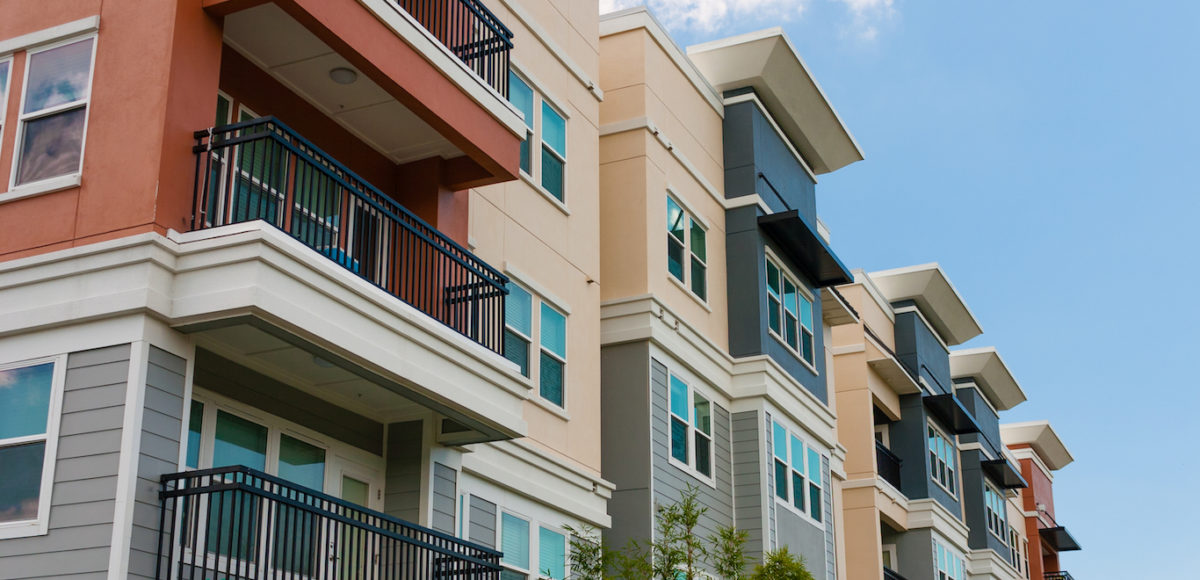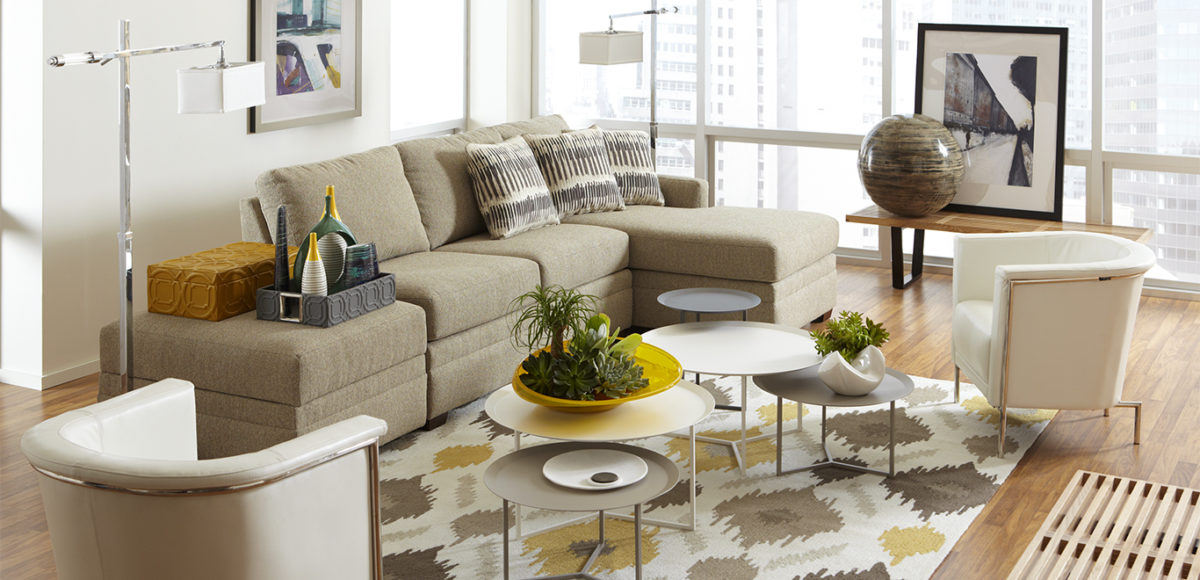You’ve spent the last few decades building equity in your home. But along with the financial benefits of homeownership, you’ve also had to devote entire weekends to yard work, pay property taxes, and deal with the headaches of home repair. If you’re looking to downsize now that you’ve left the workforce—or sold your home without a backup plan—you might want to consider moving into smaller rental housing. You can leave behind the maintenance tasks, and free yourself up for new adventures in retirement after selling your primary residence.
Here are a few tips for what to look for when renting after selling a home so that you can achieve ultimate home-like comfort, whether you’re intentionally renting after selling your home to downsize, or if your home sells before you have a secondary residence lined up.
1. Determine the best location.
As with any real estate decision, the location of your next home is of the utmost importance. Whether you’re going from a house to an apartment because you’re downsizing your home, or because you sold your home without a backup plan due to a competitive real estate market, there’s one great benefit when it comes to renting: flexibility.
Did your kids move across the country with the grandkids? When renting, you don’t have to worry about the timeline of selling your primary residence before you’re able to pick up and go. You can easily rent your next home in the city where your loved ones have landed. Or maybe you prefer to skip the cold and live half of the year in a sunnier climate? Renting a condo or an apartment in a warmer region is a convenient way to get out of shoveling snow for yet another winter.
2. Are pets allowed?
Once you’ve determined where on the map you’d like to live, this question is probably the next factor to consider if you’re a pet owner. After all, this simple question can cross off a whole swathe of possibilities and quickly hone your search. First of all, find out if the complex allows pets. If so, inquire if there are any breed restrictions—an especially important factor when it comes to dogs as some places only allow specific kinds of dogs. Once you’ve found a few places that allow pets (or don’t) you can confidently carry on your search.
3. Check for accessibility.
In addition to where your new place is located—and whether Fido can join you—inquire with the property manager about the apartment’s accessibility. For instance, does the complex have elevators to get to the upper floors? If not, you may want to check with the property management to ensure the apartment you’re interested in is located on the first floor. The last thing you want is to be forced to carry groceries up three flights of stairs! Renting is supposed to make your life easier, after all.
4. Calculate optimal square footage.
Downsizing is usually one of the key motivators for selling a home that you’ve owned for many years. Your current home is too big, but how much smaller should the new one be? To determine what the optimal square footage for a rental apartment or condo would be, consider your lifestyle. Are you an avid host or hostess? If so, you may want to find a place with an extra-large kitchen and dining area, and perhaps a guest bedroom where friends and family can stay. Do you need a devoted space where you can pursue your hobbies? If so, include that in any arithmetic you do when you’re looking at apartments.
5. Downsize your belongings.
In addition to reflecting on the lifestyle you’d like to have in your new, smaller space, you’ll need to consider one very important thing: your stuff. No matter your reasons for moving, decluttering and organizing your possessions before you change addresses is always a good idea. In the case of downsizing, it’s especially important to part with things that will no longer be useful in your new life. Most house-sized furniture will not fit into a standard apartment. Instead of making do with what you have, rent apartment furniture until you’re ready to buy long-term furniture that fits your space.
Donate what you no longer need to friends, family, neighbors, and even charities you support. Get rid of that lawnmower, all those tools you needed to maintain your home, and any other bulky items or unnecessary items that are no longer serving you and step unburdened into your new life.
6. Investigate amenities.
One of the amazing benefits of apartment living is the amenities. Single-family homes with 24-hour fitness centers, yoga classes, lap pools, and concierge garbage service are few and far between. When seeking out your new apartment home, be sure to check what amenities are available to residents. After all, what is available now may have changed greatly from the last time you rented. Depending on how pampered you’d like to be in your new home, you might want to check if the following amenities are offered before you sign your lease:
- Parking spot: Some apartment complexes provide a free parking spot to residents, while others may charge an additional fee to reserve a spot on the premises. Prefer covered parking? Ask about that, too.
- Furnished units: Some apartments will come partially or completely furnished or include the option to select CORT Furniture as an Amenity™. After downsizing, furnished units or furniture rental is a great option that allows you to minimize what you own and hold onto only what you really want and need.
- In-unit washer and dryer: You likely would prefer to avoid the communal laundromat after having had access to a washer and dryer in your own home for many years. Check to make sure the apartment you’re considering has hook-ups for a washer/dryer in the unit.
- Fitness center: If you enjoy working out, find out if the complex offers a fitness center. If so, what kind of exercise equipment do they have on-site? Do they offer fitness classes?
- Pool: Swimming is great exercise at any age, and aside from the fitness benefits, pools are also a great place to host family gatherings.
- Community center: Speaking of family gatherings, if you liked to host events in the past at your previous (larger) home, check to see if the apartment or condo complex has a community center. Often these can be reserved for large family get-togethers if you still want to play host or hostess even though you’ll be living in a smaller space.
- On-site storage: Many residential complexes now offer on-site storage for larger items that may not fit in your unit. This is a great perk if you’ve got a few large items that you can’t bear to part with, but which won’t fit in your downsized home.
Starting a new chapter of your life means freeing yourself from the burden of things. After you’ve sold your home for retirement, you can live freely without material possessions weighing you down. Imagine the possibilities for travel, connection, adventures, and more. As you’re exploring a new way of life, CORT Furniture Rental can be your partner in providing the practical: comfortable furniture wherever you end up. With furniture rental subscriptions across the United States—and the globe—turn to CORT to furnish your next space for as long or as short as you need it.






